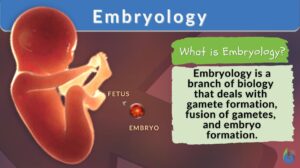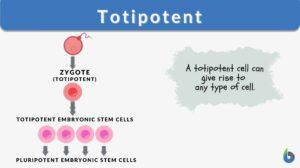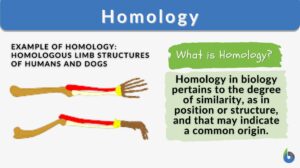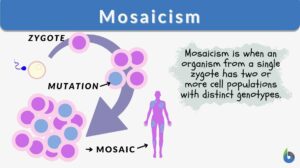Search Results for: embryogenesis
Embryogenesis
Embryogenesis The processes leading to the development of an embryo from egg to completion of the embryonic... Read More
Embryology
Embryology Definition Embryology is a branch of biology that deals with the topics concerning gamete formation... Read More
Y chromosome
Y chromosome Definition The Y chromosome constitutes one member of the pair of sex chromosomes within an organism, a common... Read More
Centrosome
Centrosome Definition What is a centrosome? The centrosome is considered to be the main microtubule-organizing... Read More
Maternal-effect gene
Definition noun, plural: maternal-effect genes (1) A gene from the mother's genome in which its phenotype in the zygote is... Read More
Maternal gene
Definition noun, plural: maternal genes (1) A gene from the mother's genome in which its expression on the phenotype of the... Read More
Zygotic-effect gene
Definition noun, plural: zygotic-effect genes (1) Any of the genes expressed in the early embryo. (2) Any of the genes... Read More
Totipotent
Totipotent Definition What is totipotent? In general terms, totipotency is defined as the ability of a single cell to... Read More
Egg polarity gene
Definition noun A maternal gene that encodes for products (mRNA or protein) whose spatial distribution in the egg determines... Read More
Parthenogenesis
To reproduce, by definition, means to produce new offspring. The process is referred to as reproduction, which is one of the... Read More
Cell adhesion
Cell Adhesion Definition Cell adhesion is the process in which a cell uses a specialized complex of proteins to get... Read More
Imprinting
What does imprinting mean? Have you watched the TV cartoon show “Tom and Jerry” with an episode of a duck and its... Read More
Progesterone
Definition noun, plural: progesterones A progestogen hormone, with a chemical formula of C21H30O2, naturally produced in... Read More













